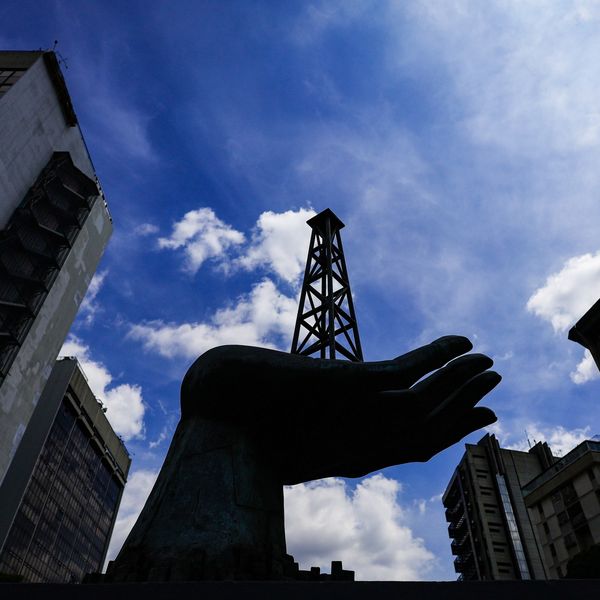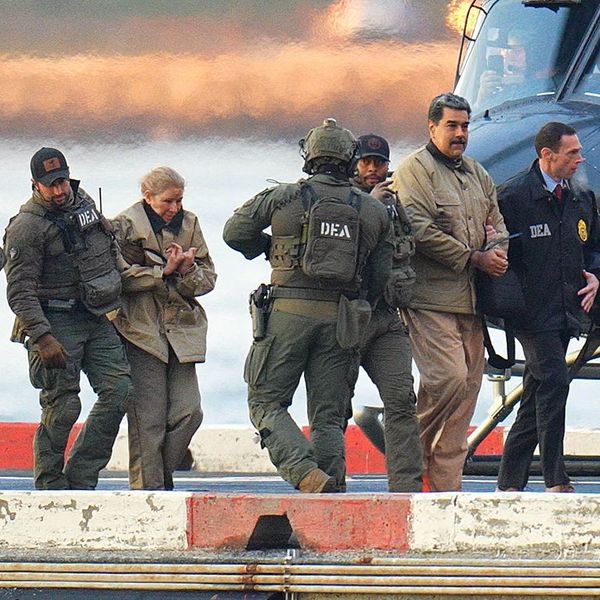Cipher Brief Expert John McLaughlin is a distinguished practitioner in residence at the Johns Hopkins University School of Advanced International Studies. He served as the Deputy Director of the Central Intelligence Agency from 2000-2004 and Acting Director of the CIA in 2004.
The new coronavirus brings us smack up against the modern reality of a totally globalized and interconnected world — and strongly suggests the need for a globally coordinated response. The many unknowns — will it persist year-round, for example, or be seasonal? — make it impossible to estimate its duration and impact, unlike other things that threaten our security, such as the durability and strength of rival militaries. The threat posed to our individual lives and personal security by the virus becomes clearer every day, but what is only beginning to emerge is the impact it will have on our collective security through its effect on resources, trade flows, military preparedness and possibly even regime stability in some parts of the world.
The international system these days is powered by global connectivity enhanced by increased physical mobility. It functions best when supply and demand interact freely and commodity chains are unimpeded. But the new virus has thrown sand into these gears — introducing elements of unpredictably over which no one country has control.
In essence, COVID-19 threatens to act — or is already acting — like a sort of international circuit breaker, impeding the secure flow of things we depend on in our daily lives, from medicine and food to cars and smartphones.
Let’s start with medical supplies and pharmaceuticals. International supply chains for prescription drugs and their components are so complex in our interconnected world that even many medical specialists say they have trouble unraveling their origins.
We do know that 80 to 90 percent of U.S. antibiotics either come from China or rely on components made there; with China’s factories cut back severely and its domestic needs growing because of its own battle with COVID-19, we risk suffering from shortages of a range of medicines. Similarly, India, the world’s largest supplier of generic drugs and a major vaccine manufacturer, is cutting exports of 26 drug components to cope with domestic needs; moreover, the systemic nature of the problems is illustrated by India’s reliance on China for 70 percent of its drug components.
It’s impossible to gauge how deeply this dependence extends into the U.S. economy. But we do know, for example, that every auto sold in the United States is, to varying degrees, imported. CNN has pointed out that Tesla is the only company that makes all its American cars at a U.S. plant — but roughly half its parts come from overseas. My own local auto parts dealer told me that he has enough things in the pipeline to last about a month, but after that, shortages will develop if foreign plants are offline due to COVID-19 disruptions.
The world also runs on oil, and the COVID-19 crisis has even created turbulence in that vital market. The virus is hammering industrial production and other business around the world, and this has caused the first big oil price shock since the 2008 international financial crisis — with the price of crude plunging 20 percent early this month as supplies bulge and demand shrinks. This triggered an argument between Saudi Arabia and Russia, the world’s two largest oil producers, about how to respond, with Saudi Arabia pushing for steep production cuts to support demand, which Russia opposed — largely because it feared that pushing prices higher would help its American competitors.
American consumers may get the temporary benefit of lower gas prices, but the broader domestic impact could be employment cutbacks in communities dependent on the energy business, with a damaging ripple effect felt by businesses that serve them. A global economy undisturbed by COVID-19 would not have to worry about this.
Coping with the virus will also introduce strains on normally tight alliances. We already see this in the normally close-knit European Union, whose 27 countries typically come together in crises. Now, as worst-hit Italy struggles to cope, the other 27, even those who have so far dodged the worst of the coronavirus, are refusing to send Rome critical supplies. Tellingly, China stepped in with a shipment of medical experts, drugs and intensive-care equipment to Italy — a possible reflection of Italy’s participation in China’s Belt and Road Initiative (Beijing’s ambitious program of logistical, legal and transport initiatives to connect China more closely with Europe and the Middle East). With its own outbreak beginning to subside, China is reaching out to a number of other countries — to a degree taking up the leadership role that normally belongs to the U.S. (as in the Ebola crisis of 2014-16.)
And what of our military forces? Few Americans live and work in closer proximity. The 1918 Spanish flu epidemic sickened 20 to 40 percent of U.S. Army and Navy personnel. Probably with such history in mind, the Defense Department has stopped travel for 60 days of military personnel to, from or through Level 3 COVID-19 countries. This includes most European countries, China and at least one Asian country with a large U.S. troop presence, South Korea. Clearly, this will affect exercise schedules and general preparedness.
Then there are the closed societies, such as North Korea, or those that restrict information, such as Iran and Syria, about which we know little. North Korea has announced restrictions, but is surely unprepared medically for a major outbreak. Iran is seen in satellite photos to be preparing mass graves for deaths that appear to exceed what Tehran has publicly acknowledged. For such countries, a medically overwhelming epidemic could have consequences for regime stability. Collapse in a country such as North Korea — its opacity makes this hard to gauge — would add nearly unmanageable relief and refugee problems to an already stressed international community.
As in another war against a very different enemy, the words of Winston Churchill continue to carry meaning — in battling COVID-19, we unfortunately are not at the beginning the end, but rather the “end of the beginning.”
This piece by Cipher Brief Expert and former Acting Director of the CIA, John McLaughlin, was first published by our friends at Ozy.
Read more expert-driven national security insights, opinion and analysis in The Cipher Brief














